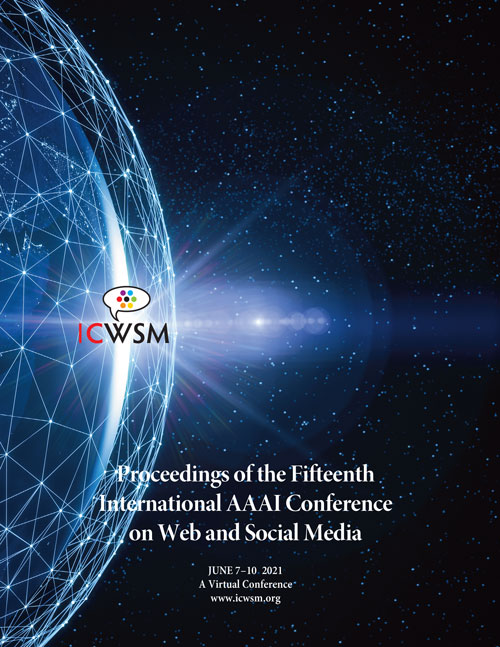Political Depolarization of News Articles Using Attribute-Aware Word Embeddings
DOI:
https://doi.org/10.1609/icwsm.v15i1.18069Keywords:
Subjectivity in textual data; sentiment analysis; polarity/opinion identification and extraction, linguistic analyses of social media behavior, Trust; reputation; recommendation systems, Measuring predictability of real world phenomena based on social media, e.g., spanning politics, finance, and health, Qualitative and quantitative studies of social mediaAbstract
Political polarization in the US is on the rise. This polarization negatively affects the public sphere by contributing to the creation of ideological echo chambers. In this paper, we focus on addressing one of the factors that contributes to this polarity, polarized media. We introduce a framework for depolarizing news articles. Given an article on a certain topic with a particular ideological slant (eg., liberal or conservative), the framework first detects polar language in the article and then generates a new article with the polar language replaced with neutral expressions. To detect polar words, we train a multi-attribute-aware word embedding model that is aware of ideology and topics on 360k full-length media articles. Then, for text generation, we propose a new algorithm called Text Annealing Depolarization Algorithm (TADA). TADA retrieves neutral expressions from the word embedding model that not only decrease ideological polarity but also preserve the original argument of the text while maintaining grammatical correctness. We evaluate our framework by comparing the depolarized output of our model in two modes, fully-automatic and semi-automatic, on 99 stories spanning 11 topics. Based on feedback from 161 human testers, our framework successfully depolarized 90.1% of paragraphs in semi-automatic mode and 78.3% of paragraphs in fully-automatic mode. Furthermore, 81.2% of the testers agree that the non-polar content information is well-preserved and 79% agree that depolarization does not harm semantic correctness when they compare the original text and the depolarized text. Our work shows that data-driven methods can help to locate political polarity and aid in the depolarization of articles.Downloads
Published
2021-05-22
How to Cite
Liu, R., Wang, L., Jia, C., & Vosoughi, S. (2021). Political Depolarization of News Articles Using Attribute-Aware Word Embeddings. Proceedings of the International AAAI Conference on Web and Social Media, 15(1), 385-396. https://doi.org/10.1609/icwsm.v15i1.18069
Issue
Section
Full Papers

